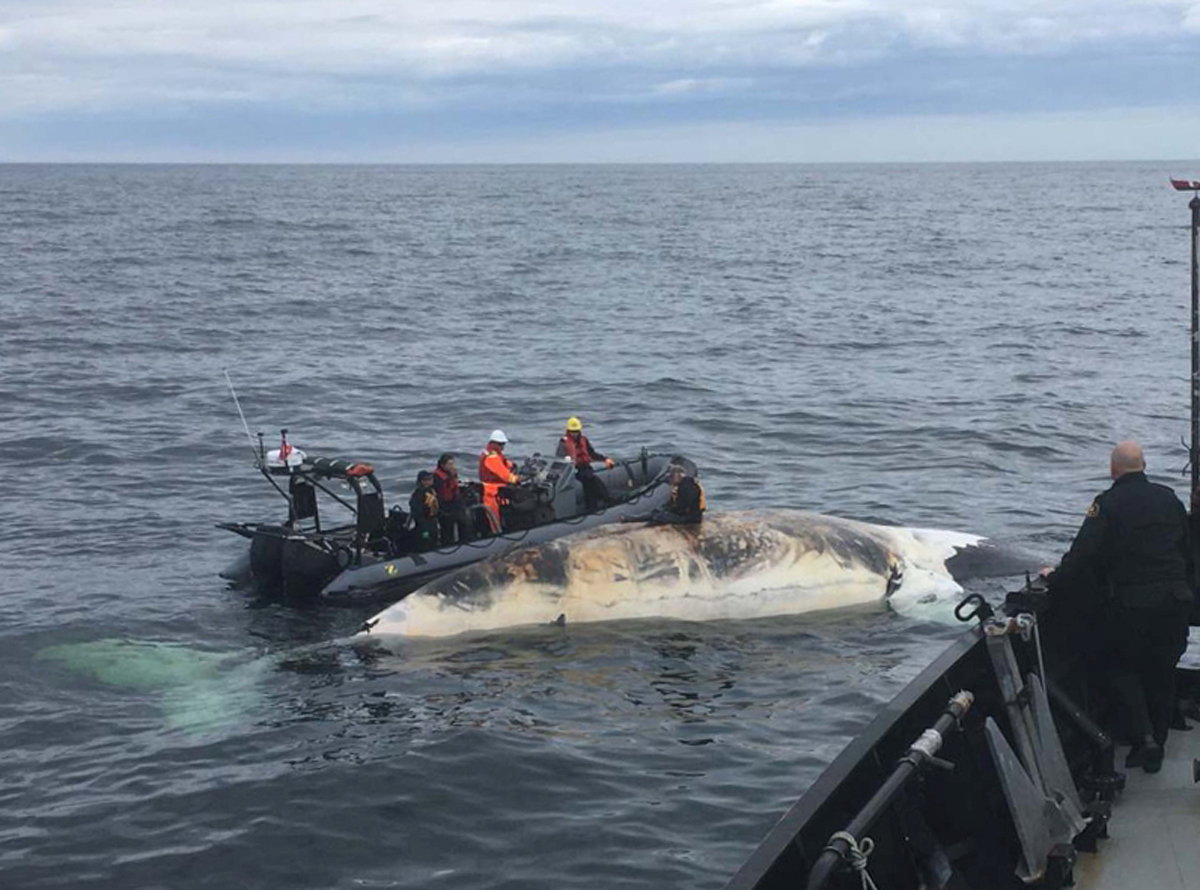Report finds staggering decline in Canada wildlife
Sign up now: Get ST's newsletters delivered to your inbox

Canadian officials collect the tissue of a dead North Atlantic Right Whale in the Gulf of St Lawrence, Aug 12, 2017.
PHOTO: REUTERS
MONTREAL (AFP) - Half of the vertebrate populations in Canada are in staggering decline, despite the country's vast outback, according to a WWF report on Thursday (Sept 14) that highlighted threats to beluga whales and caribou.
The World Wildlife Fund in its Living Planet Report pointed to 451 shrinking animal populations out of 903 monitored over a 45-year period that ended in 2014.
They included mammals, fish, birds, amphibians and reptiles.
Many have declined up to 83 per cent, WWF-Canada found.
"It's easy to assume shocking figures of wildlife decline don't apply here in Canada," said WWF-Canada president David Miller.
"Ours, after all, is a country of wide open spaces with ample room for grizzlies and gannets, belugas and bass, salamanders and swift foxes - isn't it?"
But the reality, Miller added, is that "wildlife loss is not someone else's problem. It's a Canadian problem."
Habitat loss from forestry, agriculture, urbanisation and industrial development remains the greatest threat to wildlife in Canada, according to the report.
But pollution, climate change and invasive species were also factors cited by the conservation group.
A southernmost population of beluga whales in the Saint Lawrence seaway was listed as endangered this year after several delays in protecting its habitat. Several died last month in apparent collisions with cargo ships and entanglements with fishing gear. Fewer than 900 are left.
The Barren-ground caribou's numbers, meanwhile, have plummeted from more than two million in 1990 to about 800,000.
Their decline has been blamed on a warming Arctic that has brought unseasonal rains to the tundra that freeze and glaze ice over the lichen and plants the caribou eat to survive. Mining, shipping and tourism have also disturbed calving grounds.
In July, a study published in the journal Proceedings of the National Academy of Sciences showed that more than 30 per cent of vertebrates around the world are in decline, both in terms of population figures and their geographic spread.


